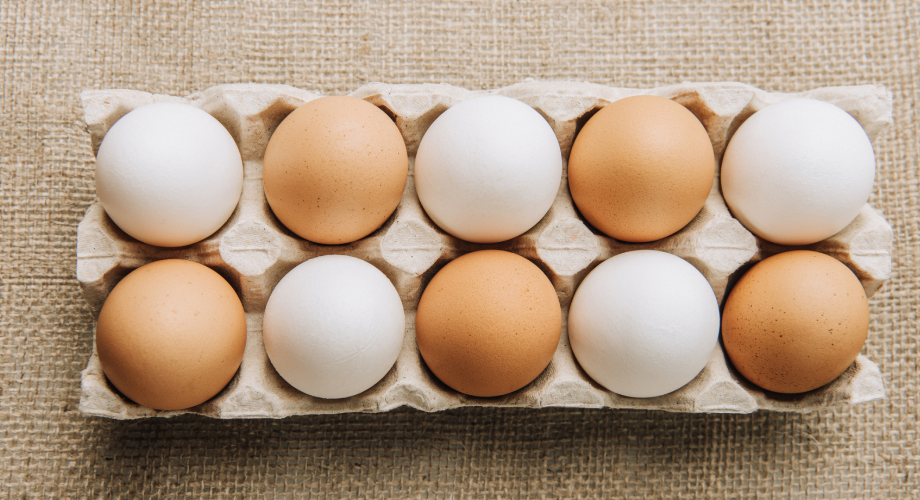
Dutch supermarkets are increasingly shifting to white eggs instead of brown ones. The chickens that lay white eggs live longer, lay more eggs, are easier to keep, and require less feed, making them cheaper and more sustainable, Peter van Horne, poultry farming economist at Wageningen University, explained to the Telegraaf.
“[Dutch] consumers are still a bit reluctant because they think that brown eggs are more natural or more animal friendly,” Van Horne said. According to him, that is an outdated image from the past, when free-range eggs tended to be grown and battery farm eggs were white. That’s no longer the case. White eggs are now also of comparable size and shell quality as brown ones.
“The white chicken has made a lot of progress in breeding terms. It is a smaller, lighter chicken that needs less feed and lays more eggs than the brown chicken.” A white chicken lays an average of 450 eggs in a year, while a brown one lays about 380, Van Horne said. “Farmers with white chickens all say: it is a very pleasant chicken that is easy to keep. It is much calmer and pecks less at other chickens. So it is better in terms of economy, environment, and animal welfare. I can’t think of any argument for producing brown eggs. The white ones only have advantages.”
Dutch supermarkets are already making the switch, often stressing white eggs’ sustainability. For example, Lidl sells white eggs from Kipster, which calls itself the most environmentally and human-friendly farm in the world. The supermarket has been selling exclusively white eggs in the Netherlands for several years. “Through our collaboration with Kipster, the most environmentally friendly egg in the world, we have learned that chickens that lay white eggs need less feed. This results in a lower impact on the environment, because fewer raw materials are used,” a spokesperson said to the supermarket.
“The white chicken has made a lot of progress in breeding terms. It is a smaller, lighter chicken that needs less feed and lays more eggs than the brown chicken.” A white chicken lays an average of 450 eggs in a year, while a brown one lays about 380, Van Horne said. “Farmers with white chickens all say: it is a very pleasant chicken that is easy to keep. It is much calmer and pecks less at other chickens. So it is better in terms of economy, environment, and animal welfare. I can’t think of any argument for producing brown eggs. The white ones only have advantages.”
Dutch supermarkets are already making the switch, often stressing white eggs’ sustainability. For example, Lidl sells white eggs from Kipster, which calls itself the most environmentally and human-friendly farm in the world. The supermarket has been selling exclusively white eggs in the Netherlands for several years. “Through our collaboration with Kipster, the most environmentally friendly egg in the world, we have learned that chickens that lay white eggs need less feed. This results in a lower impact on the environment, because fewer raw materials are used,” a spokesperson said to the supermarket.
Article Credit: nltimes